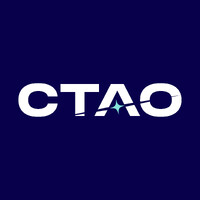News - University of Bern joins CTAO-CH Collaboration
What
Cherenkov Telescope Array Observatory CTAO (astroparticle physics)
A new Swiss partner
A new institution, the University of Bern, signed the collaboration agreement between the Swiss institutes (the CTAO-CH Collaboration) involved in the Cherenkov Telescope Array Observatory (CTAO) project earlier this year.
The University of Berne is now part of the consortium of around 1,400 scientists from more than 40 institutions around the world who are working on the construction of the observatory.
Researchers from Berne were already working with others from the Swiss Federal Institutes of Technology ETHZ and EPFL and the Universities of Geneva (UNIGE) and Zurich.
UNIGE is associated with the Cherenkov Telescope Array (CTA) project and is coordinating the activities of the Swiss institutions, through the laboratory of Professor Teresa Montaruli, from the Department of Nuclear and Corpuscular Physics in the Faculty of Science, which has been involved since 2014.
Understanding the Universe
CTAO is intended to be the world's largest observatory for gamma-ray astrophysics (the highest-energy band of the electromagnetic spectrum).
It will be made up of telescopes that capture Cherenkov light emitted by the spray of particles produced by gamma rays from astrophysical sources such as supernovae and pulsars, black holes at the centre of activated galaxies or gamma-ray bursts. CTAO will improve our ability to study the most extreme and unusual phenomena in the Universe.
The project is based on the Roque de los Muchachos astronomical observatory, located on the island of La Palma, and the Paranal astronomical observation site in Chile, managed by the European Southern Observatory (ESO). Data will be collected over a period of 30 years in order to understand the impact of particles on the evolution of cosmic systems.
Other information
The CTAO project is one of the International Research Infrastructures supported by the State Secretariat for Education, Research and Innovation (SERI).
To find out more, click here:
- Electromagnetic spectrum (CTAO)
- Science Book (Arxiv - Cornell University)
- CTAO organisation and Swiss participation (UNIGE)

